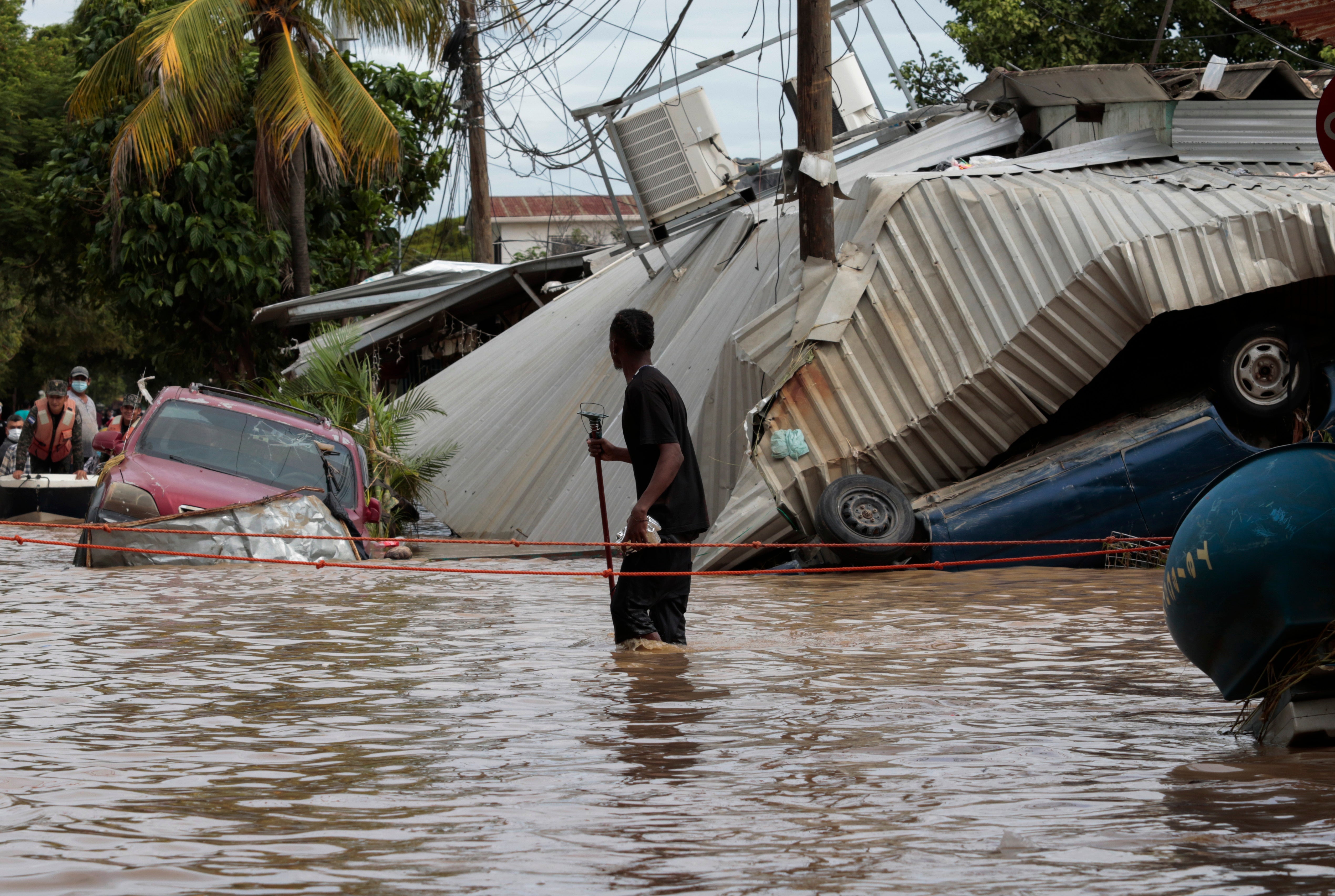Hundreds of Hondurans gather to walk in caravan to the U.S.
Hundreds of Hondurans devastated by recent hurricanes have begun walking towards the United States

Your support helps us to tell the story
From reproductive rights to climate change to Big Tech, The Independent is on the ground when the story is developing. Whether it's investigating the financials of Elon Musk's pro-Trump PAC or producing our latest documentary, 'The A Word', which shines a light on the American women fighting for reproductive rights, we know how important it is to parse out the facts from the messaging.
At such a critical moment in US history, we need reporters on the ground. Your donation allows us to keep sending journalists to speak to both sides of the story.
The Independent is trusted by Americans across the entire political spectrum. And unlike many other quality news outlets, we choose not to lock Americans out of our reporting and analysis with paywalls. We believe quality journalism should be available to everyone, paid for by those who can afford it.
Your support makes all the difference.Hundreds of Hondurans, many devastated by recent hurricanes were setting out on a trek toward the United States on Thursday, a week after the country s president himself visited Washington and warned of possible food shortages as a result of the storms.
Roughly 600 men, women and children gathered Wednesday night in the northern city of San Pedro Sula and began walking along a dark highway toward the border with Guatemala
“There is nothing, my brother, we lost everything,” José Samuel Reyes, a resident of San Pedro Sula, the country's industrial hub and the area hardest hit last month by Hurricanes Eta and Iota, told The Associated Press.
Honduras' President Juan Orlando Hernández last week traveled to the U.S. to seek help from the Trump administration, warning that his country is on the brink of food shortages as a result of the back-to-back hurricanes that triggered massive crop loss, paralyzed the economy and drove tens of thousands of people into shelters.
The faces of the would-be migrants reflected that despair.
“We are going here only with what the hurricane left us,” said Edgardo Calderón, who said he was setting out with part of his family to the U.S. “to see what happens.”
According to the International Federation of Red Cross and Red Crescent Societies, more than 4.3 million Central Americans, including 3 million Hondurans, were affected by Hurricane Eta alone. Those numbers only rose when Iota, another Category 4 storm, hit the region.
It's unclear how far the would-be caravan will get. In October, security forces in neighboring Guatemala turned back another large group of Hondurans who tried to abandon their country.
In addition to the hurricanes, families from Guatemala, Honduras and El Salvador are seeking to flee economic devastation caused by the coronavirus pandemic as well as chronic problems of violence and poverty.
After slowing for the past year, apprehensions of migrants on the southwestern U.S. border began to rise in September and were up more than 50% in October from the previous year, according to U.S. Customs and Border Protection data.
The victory of Democrat Joe Biden in the U.S. presidential election has raised expectations that he could soften immigration policy.
However, none of that means that the journey north is easier. The possibilities of reaching the United States or even Mexico are slim due to mobility restrictions imposed against the pandemic and the strengthening of immigration controls that were put in place since 2019 in both Mexico and Guatemala due to pressure from the Trump administration.